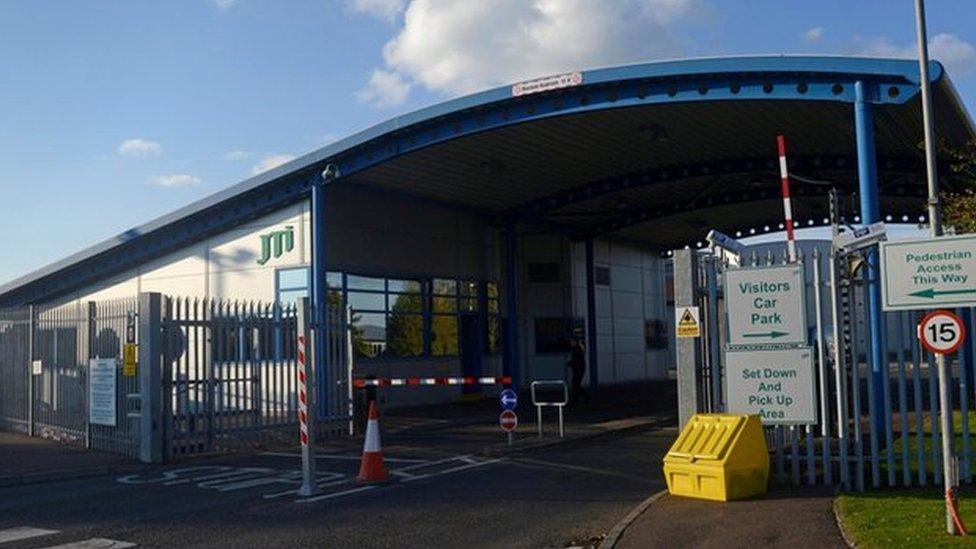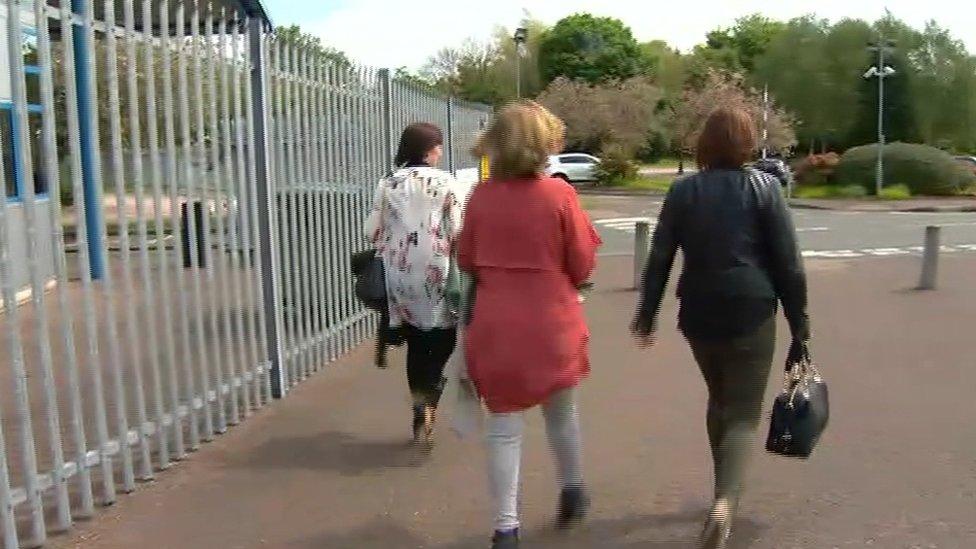JTI Gallaher closure 'caused mild recession'
- Published

The JTI site is being taken on by bus manufacturers Wrightbus
Official figures suggest the closure of the JTI Gallaher cigarette factory in Ballymena helped cause a mild recession in Northern Ireland in 2018.
Office for National Statistics (ONS) data suggests the Northern Ireland economy shrank by 0.5% while every other part of the UK grew.
Economic output in the Mid and East Antrim area, which includes Ballymena, was down by more than 10%.
The JTI factory closed at the end of 2017 with the loss of around 800 jobs.
Northern Ireland's GDP in 2018 was estimated to be just under £49bn, giving GDP per head of just under £26,000.
GDP per head for the UK as a whole was £31,976, though that average is skewed by London which has GDP per head of almost £55,000, much higher than any other UK region.
Northern Ireland has higher GDP per head than Wales and the North East of England and is roughly equal with Yorkshire and the Humber and the East Midlands.
Meanwhile more recent data suggests that the services sector, which is the largest part of the NI economy, may be slowing down.

Workers leaving the JTI Gallaher firm in 2016
In third quarter of 2019 the sector was 0.6% bigger than the same point in 2018, however it shrank by 0.1% compared to the second quarter of 2019.
Three of the major subsectors - retail and hospitality, transport and communication, business service - all had declining output on a quarterly basis.
Northern Ireland's manufacturing sector also showed some signs of a weakness in the third quarter, though the performance is likely to have been distorted by Brexit stockpiling issues.
Output was a down by 1.4% over the quarter and up by 0.8% over the year.
Export performance
Details of Northern Ireland's export performance in 2018 have also been published.
Exports increased by £837 million (8.1%) over the year, to £11.2bn but sales to Great Britain were down by £1.1bn (9.3%) to £10.6bn.
That means total external sales were down by £24m (1.1%) to £21.7bn.
The biggest growth in exports was to EU markets - sales to the Republic of Ireland grew by £330m (8.6%) to £4.2bn, while sales to other EU countries were up by £425m (21%) to £2.5bn.
- Published25 October 2017
